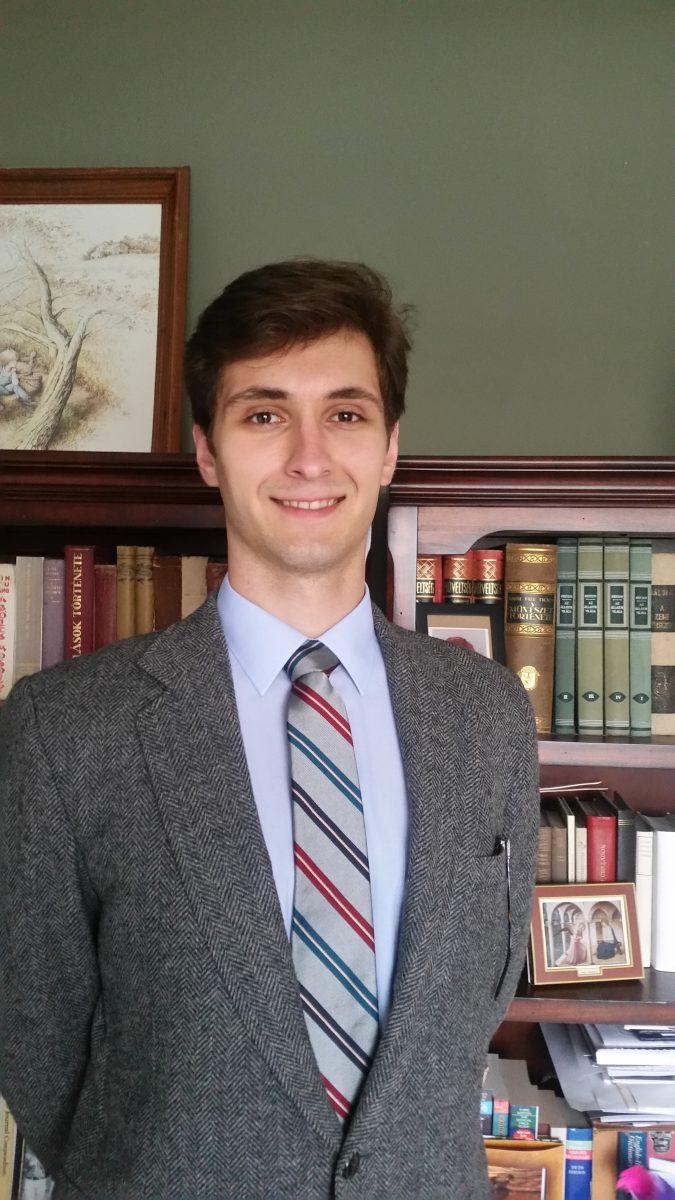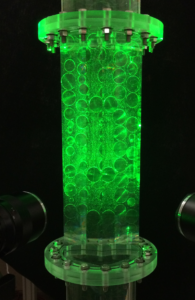Stephen King, a first year nuclear engineering master’s student, was recently recognized by the U.S. Department of Energy (DOE) for the 2018 Innovations in Nuclear Technology R&D Award for his current research.
King is researching a new type of gas-cooled reactor known as a pebble-bed facility. The project takes tennis ball-sized, helium-cooled fuel elements called pebbles in a new approach that aims to make a small modular reactor. This design increases the overall safety of the reactor according to King.
The first step in King’s research involved pumping fluid from the bottom to the top of the pebble reactor and measuring the pressure drop to collect experimental data. Calculations were run against all the work that had been done in the past 50 to 60 years, in which researchers attempted to characterize the pressure drop and see which characterizations are accurate and which characterizations don’t apply. King said his team found a very good correlation between the existing data and the data collected during his experiments.
“It was amazing because you could run the code, run the numbers, and then you didn’t have to run anything,” King said. “Like run an experiment and you see all these pressure drop values. And then you run your experiment and they match up very close. It was unique in that it was quite a feeling to see that these are all coming together.”
King said the award was given for his new approach to the research and ability to couple it with other experiments later on, furthering the investigation.
“I felt very honored,” King said. “And it was because it was through the DOE and things, so it was like ‘Wow, they found something that they thought was something significant,’ so I was very humbled and honored to receive it. It was not a hard award, as in like a plaque, it was a check in the mail, but it was still a very wonderful experience. It makes me want to do more, it’s really motivating.”
King said nuclear studies were not his first choice as a freshman. However, when he came across nuclear research during his undergraduate career, he said he saw the incredible potential of nuclear technology and knew he had found his calling.
“There’s a lot of sophisticated solutions that I feel are something that I really want to contribute to and really want to push further,” King said. “Once I saw that, I found that I like to do thermohydraulics like the mechanical side. We study the fluid flow and the heat transfer of these mechanisms and how they are behaving under certain situations. That’s how I got into Dr. [Yassin] Hassan’s thermohydraulics lab. Over the years I was in there working, and working on wonderful different projects and with many different people, who all have different approaches and are wonderful to work with.”
King plans to further his research by looking at and measuring fluid flows with more detailed and different techniques. There are also other team members furthering the research on the computational side, running codes that will calculate all velocities, generate fluid geometries or fluid flow structures that can be seen and see if the computer will calculate things that match the actual physical phenomena.
“We are moving on to some really amazing things with it,” King said. “We have two more facilities, both of the same dimension. And we are looking at more unique phenomena with more finesse.”
Thien Nguyen, research assistant professor in the nuclear engineering department and King’s adviser, said he couldn’t be more proud of King’s accomplishment.
“He’s a very responsible, hard-working, motivated student,” Nguyen said. “I must say that I’m very happy to have him working on the project.”










